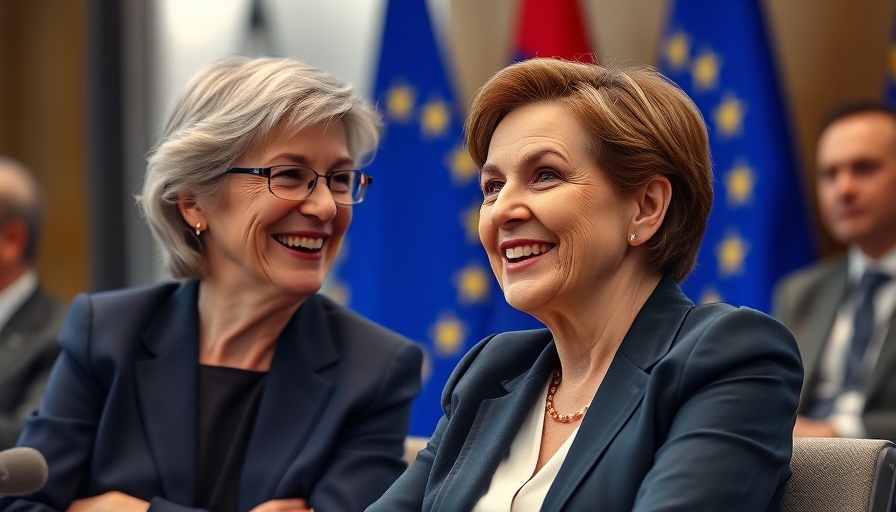
Global Economic Changes: Recognizing New Challenges
On April 25, 2025, Christine Lagarde, President of the European Central Bank (ECB), addressed significant shifts in the global economic landscape during the fifty-first meeting of the International Monetary and Financial Committee. A key takeaway from her statement is the acknowledgment of a changing global economic order, shaped by increasing trade tensions and the resurgence of protectionist policies. Lagarde emphasized that these changes could hinder the global growth engines that have fueled prosperity through expanded trade networks across decades.
The Inflation Dilemma: Navigating Through Uncertainty
Inflation, while expected to gradually ease, presents a complex challenge amid geopolitical tensions. Lagarde noted the unpredictable nature of inflation influenced by trade disputes and tariffs. As the ECB lowered interest rates by 25 basis points, there's a hopeful outlook for disinflation in the Eurozone; however, the uncertainty surrounding global trade policies could disrupt this recovery, creating a ripple effect on prices and confidence.
Investors and Policymakers: A Call for Responsive Strategies
The ECB's commitment to a data-dependent policy ensures that decisions will adapt to real-time economic conditions. Lagarde’s insights act as a guiding framework for both investors and policymakers, highlighting the importance of flexibility in navigating economic challenges. The Governing Council remains cautious and aware that with fluctuating global dynamics, clear communication about policy pathways is essential. The unfolding scenarios require careful monitoring to maintain effective economic strategies.
 Add Row
Add Row  Add
Add 




 Add Row
Add Row  Add
Add 


Write A Comment